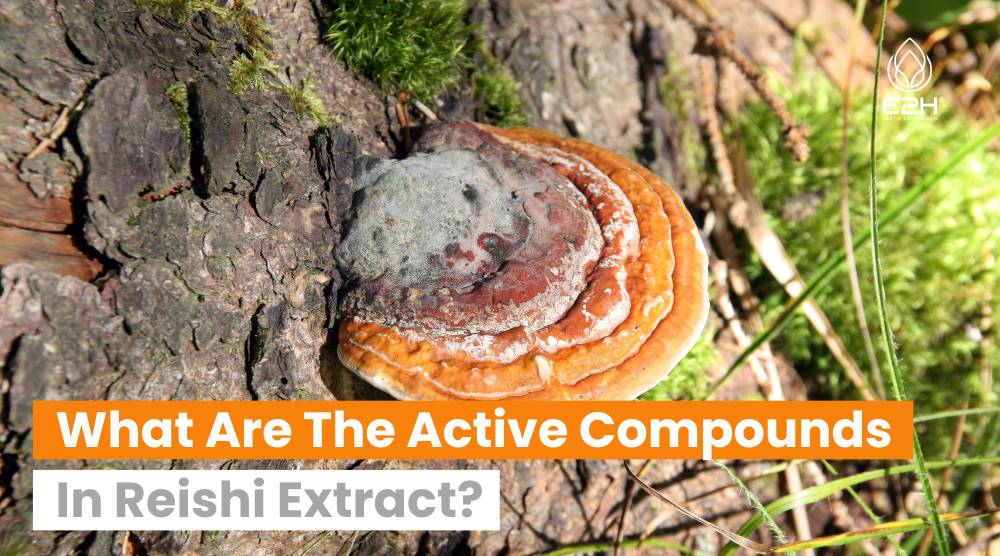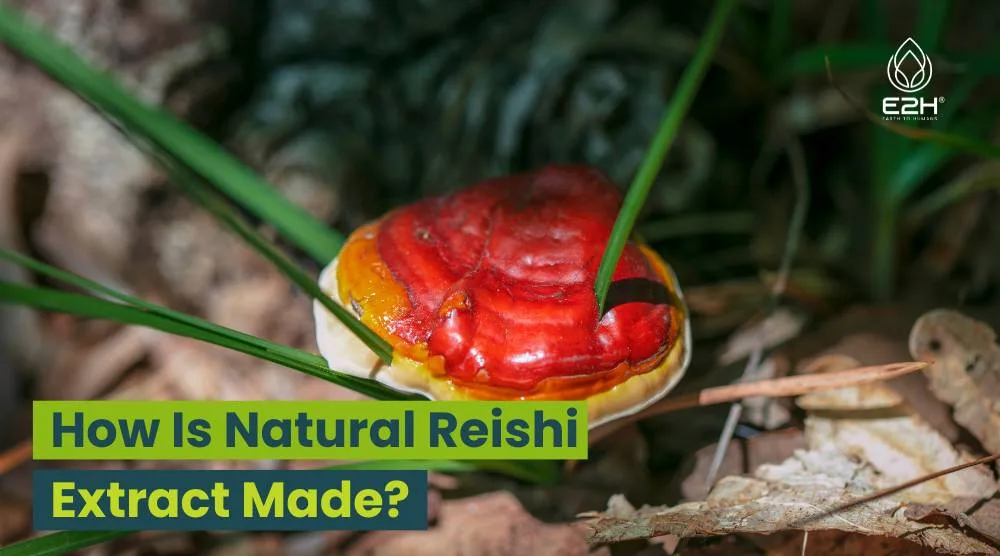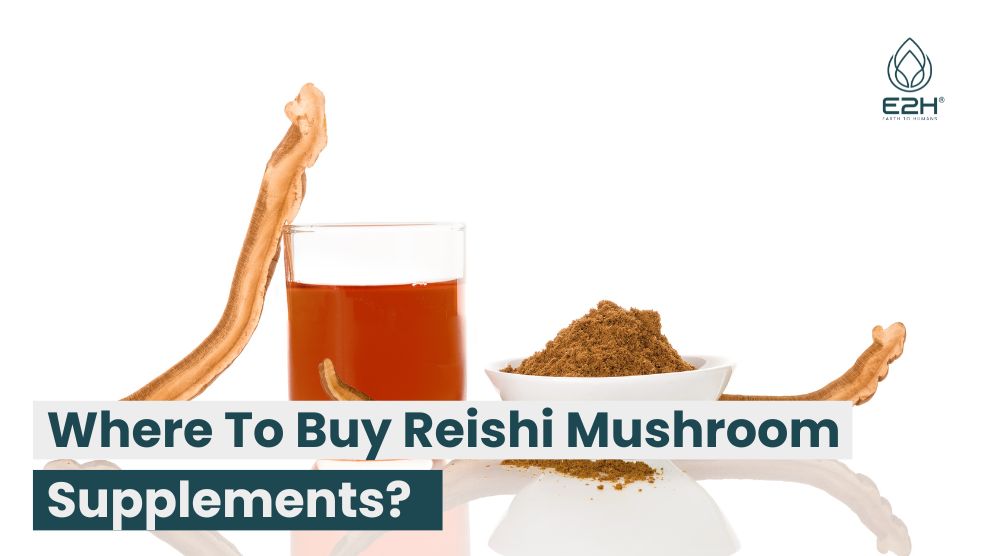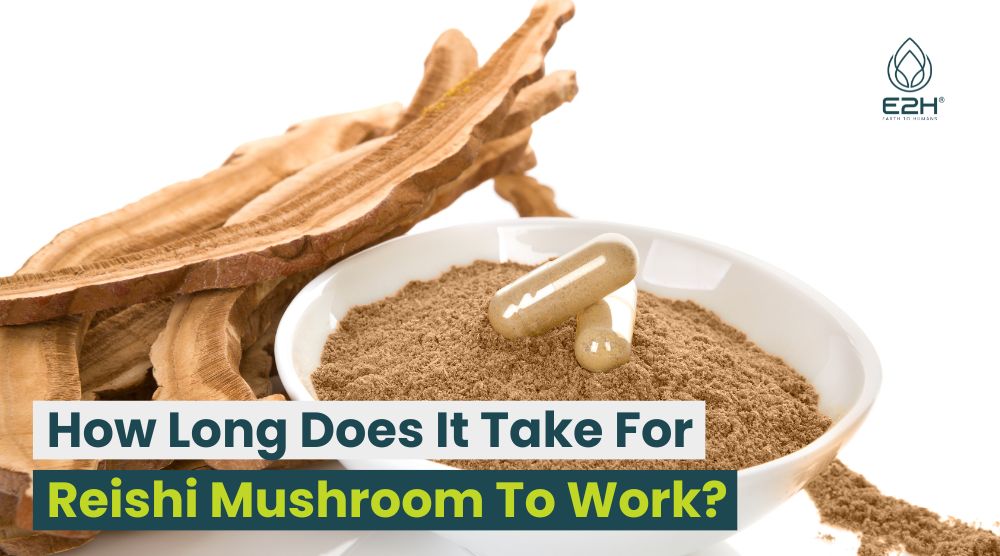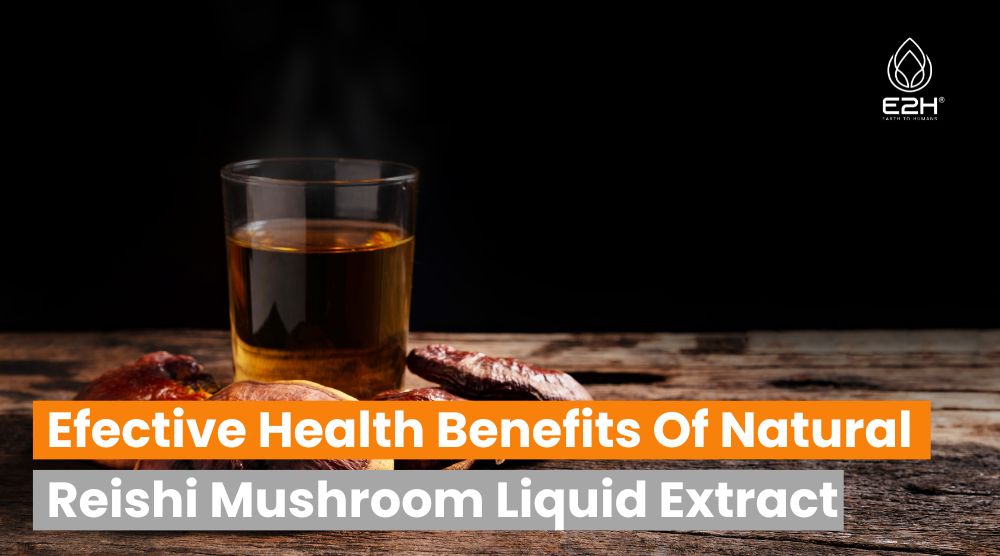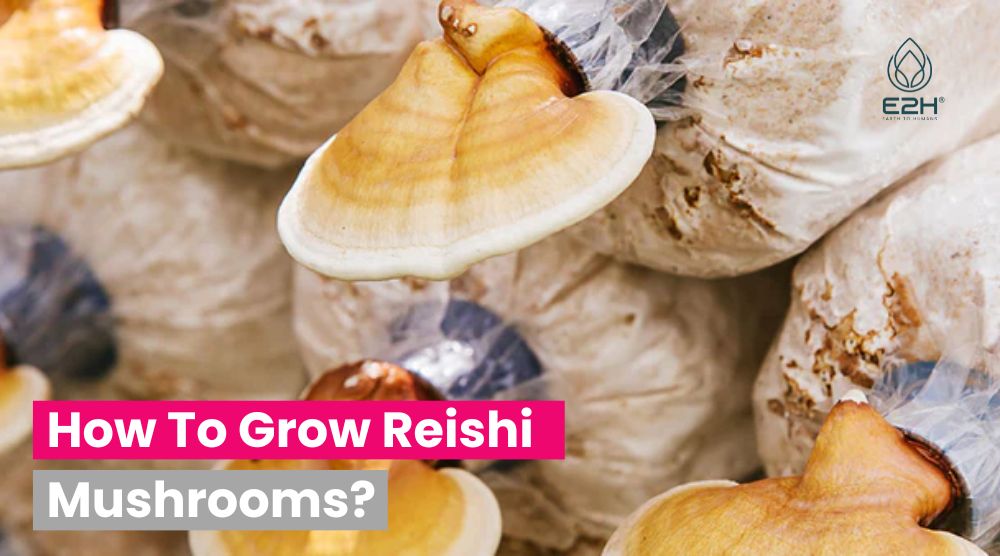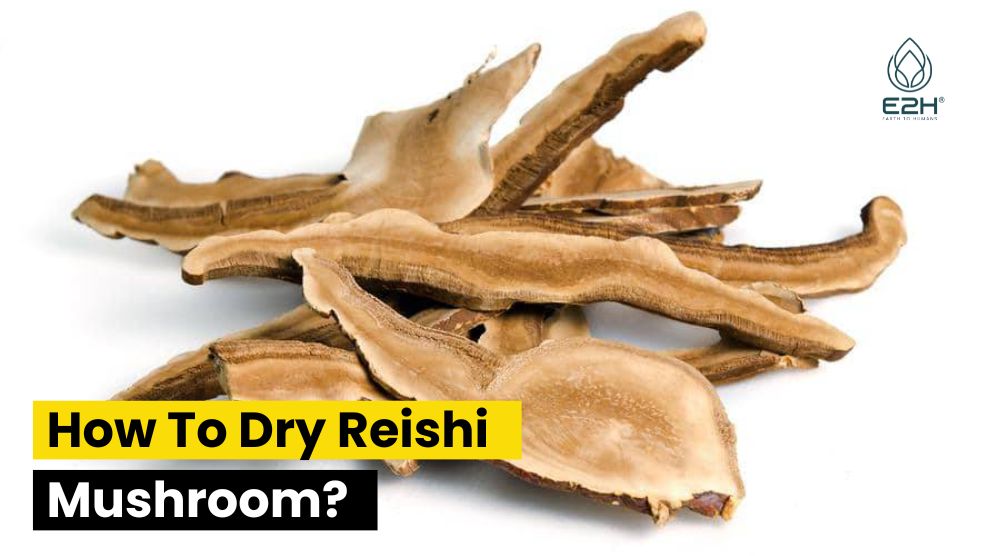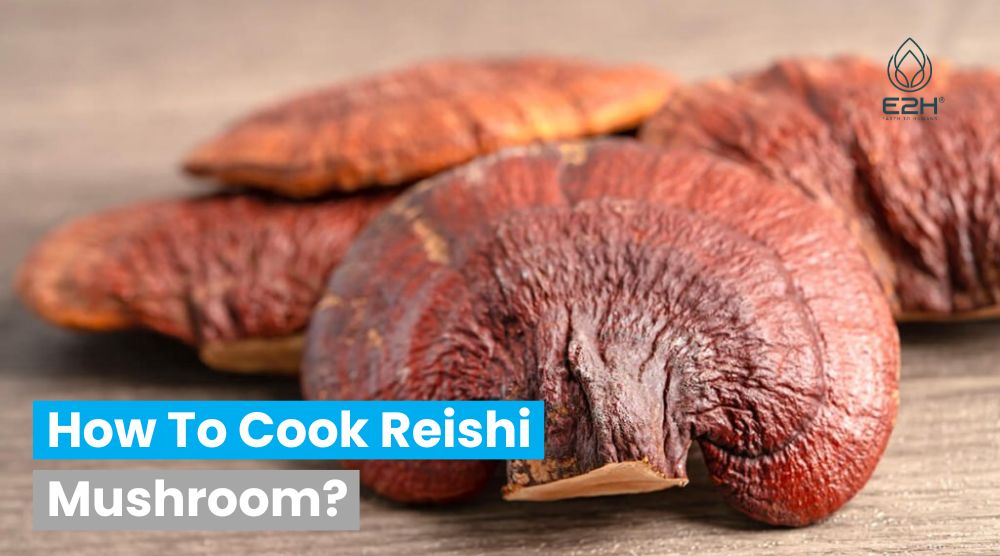Active compounds in Reishi extract include beta-glucans, triterpenes, and polysaccharides. To fully understand the benefits of these compounds and how Reishi extract can support your well-being, let’s explore their unique properties and impact on health in a simple and engaging way.
What Is Reshi & Reshi Extract?
Reishi, scientifically known as Ganoderma lucidum, is a medicinal mushroom with a rich history in traditional Asian medicine. Renowned for its health-promoting properties, Reishi contains bioactive compounds such as beta-glucans and triterpenes.
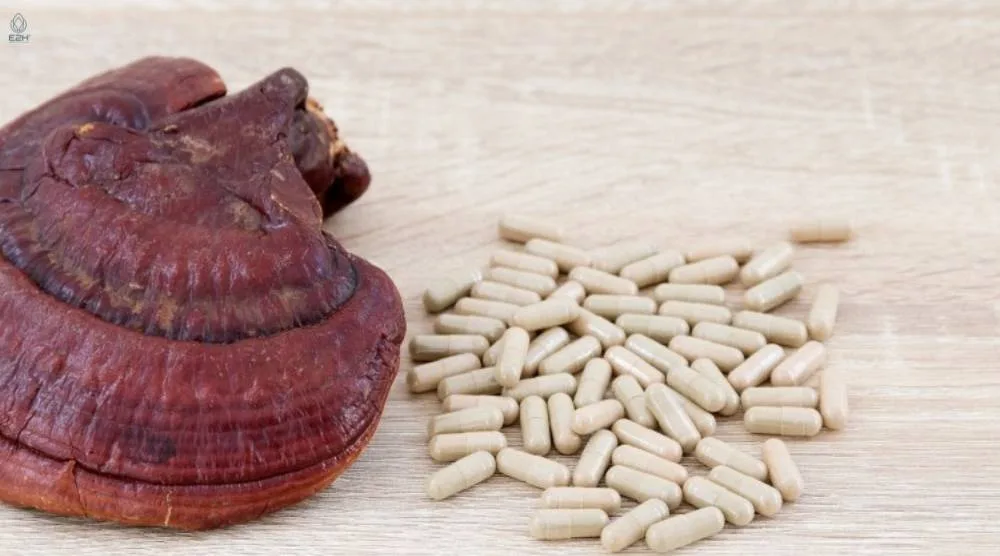
These compounds contribute to its antioxidant, anti-inflammatory, and immune-modulating effects. Reishi extract, derived from the mushroom, concentrates these beneficial compounds, enhancing its potential health benefits. Regular consumption of Reishi extract may support immune function, reduce inflammation, and promote overall well-being.
What Are The Most Important Active Compounds In Reishi Extract?
Reishi extract boasts a myriad of active compounds, each contributing to its impressive health profile. The primary players are beta-glucans, polysaccharides, and triterpenes. Beta-glucans, renowned for their immune-boosting prowess, stimulate the body’s defense mechanisms.
Polysaccharides contribute to Reishi’s anti-inflammatory effects, promoting overall wellness. Triterpenes, including ganoderic acids, showcase potent antioxidant properties, combating oxidative stress. These compounds collectively fortify the immune system, regulate inflammation, and offer potential anti-cancer benefits.
The synergy of these elements establishes Reishi extract as a formidable natural supplement, supporting health and vitality. Incorporating Reishi into your wellness routine may harness these bioactive compounds for enhanced well-being.
What Are The Pharmacologically Active Constituents Of Reshi Extract?
Reishi extract is pharmacologically enriched with key constituents, prominently beta-glucans, polysaccharides, and triterpenes. Beta-glucans play a pivotal role in immune modulation, fortifying the body’s defense mechanisms.
Polysaccharides contribute to anti-inflammatory effects, fostering overall health. Triterpenes, including ganoderic acids, exhibit potent antioxidant properties, combating oxidative stress. Additionally, adenosine, organic germanium, and ergosterol further augment Reishi’s pharmacological profile.
The harmonious interplay of these constituents positions Reishi extract as a multifaceted natural supplement, offering potential benefits in immune support, inflammation regulation, and overall health enhancement. Incorporating Reishi into your regimen may harness these pharmacologically active elements for improved well-being.
What Vitamins And Minerals Are In Reishi?
Reishi, though not notably rich in vitamins and minerals, provides valuable micronutrients that contribute to its health benefits. It contains notable amounts of potassium, a mineral crucial for heart health and blood pressure regulation. Additionally, Reishi contains small quantities of phosphorus, zinc, and copper, essential for various physiological functions.
While it’s not a robust source of vitamins, Reishi does offer trace amounts of vitamin D2, contributing to bone health. Incorporating Reishi into your diet or supplement routine provides a nuanced spectrum of micronutrients, supporting overall health in conjunction with its bioactive compounds.
What Are The Pharmacological Effects Of Reishi Extract?
Reishi extract exerts diverse pharmacological effects, primarily due to its bioactive compounds. It bolsters the immune system, thanks to beta-glucans, promoting defense against infections. Triterpenes like ganoderic acids showcase antioxidant properties, mitigating oxidative stress.
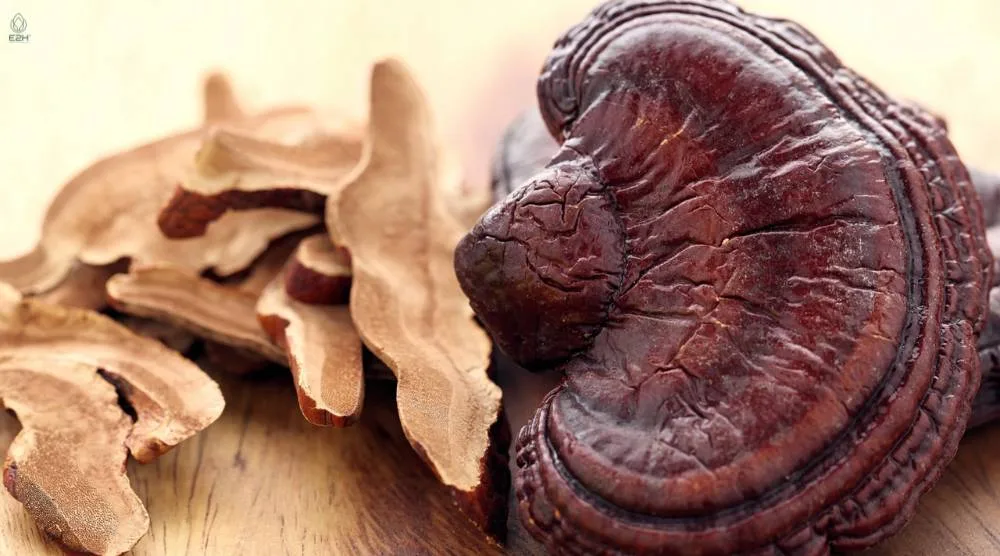
The extract’s anti-inflammatory action, attributed to polysaccharides, contributes to overall well-being. Furthermore, Reishi may have potential anti-cancer effects. Its adaptogenic nature helps the body adapt to stress. Incorporating Reishi extract into your health regimen may harness these pharmacological benefits for immune support, inflammation control, and overall health enhancement.
How Is Reishi Cultivated Through Biotechnological Methods?
Reishi cultivation through biotechnological methods involves controlled environments. It begins with spore germination on a nutrient-rich medium. The mycelium, a network of fungal threads, is then transferred to a substrate for growth. Bioreactors, maintaining optimal conditions like temperature and humidity, foster mycelial development.
This method ensures standardized, contaminant-free Reishi production. Biotechnological cultivation allows year-round harvest, consistent quality, and enhanced yield, meeting the growing demand for this medicinal mushroom in various industries, including health supplements.
What Are The Traditional Cultivation Methods For G. Lucidum Fruiting Bodies?
Traditional cultivation of Ganoderma lucidum (Reishi) fruiting bodies involves a multi-step process. It typically starts with cultivating the fungus on logs or wood substrates, mimicking its natural habitat. The logs are inoculated with Reishi spores, and the mycelium colonizes the wood.
This cultivation occurs outdoors, relying on environmental conditions for growth. The process is time-consuming, taking several months. While traditional, it lacks the precision and efficiency of modern biotechnological methods used for large-scale Reishi production today.
What Are The Effects Of Polysaccharides, Especially Β-d-glucans, From G. Lucidum Or Reishi?
Polysaccharides, particularly β-D-glucans, from G. lucidum (Reishi) are renowned for their health benefits. These compounds exhibit immunomodulatory effects, enhancing the body’s defense mechanisms. β-D-glucans stimulate immune cells, promoting a robust immune response. They also possess anti-inflammatory properties, contributing to overall well-being.
Moreover, these polysaccharides may have antioxidant effects, helping combat oxidative stress. Regular consumption of Reishi, rich in these bioactive compounds, can support immune health and contribute to a balanced inflammatory response, promoting optimal wellness.
How Does Ganoderma Lucidum Or Reishi Positively Affect And Protect Living Cells?
Ganoderma lucidum, or Reishi, positively influences living cells through its bioactive compounds. The polysaccharides, triterpenes, and antioxidants in Reishi contribute to cellular protection. Polysaccharides stimulate the immune system, enhancing the body’s ability to defend against infections. Triterpenes, such as ganoderic acids, exhibit antioxidant properties, shielding cells from oxidative stress. Regular consumption of Reishi supports overall cell health, fortifying the immune system and mitigating cellular damage caused by free radicals.
What Are Some Of The Proteins And Peptidoglycanes Found In G. Lucidum Or Reishi?
Ganoderma lucidum, commonly known as Reishi, contains proteins and peptidoglycans that contribute to its health benefits. The mushroom includes various proteins, such as lectins and enzymes, which play a role in immune modulation and cellular processes.
Peptidoglycans found in Reishi possess immunomodulatory properties, influencing the immune system’s response. These compounds collectively contribute to Reishi’s medicinal properties, supporting immune function and overall health when incorporated into dietary or supplement routines.
What Other Active Compounds, Besides Polysaccharides And Triterpenes, Are Found In G. Lucidum Or Reishi?
In addition to polysaccharides and triterpenes, Ganoderma lucidum (Reishi) harbors various active compounds. Notably, the mushroom contains adenosine, a nucleoside with cardiovascular benefits, and organic germanium, known for its potential immune-enhancing properties. Ergosterol, a precursor to vitamin D2, is also present. These compounds, along with proteins, peptidoglycans, and other elements, collectively contribute to the multifaceted health-promoting effects of Reishi when included in one’s wellness routine.
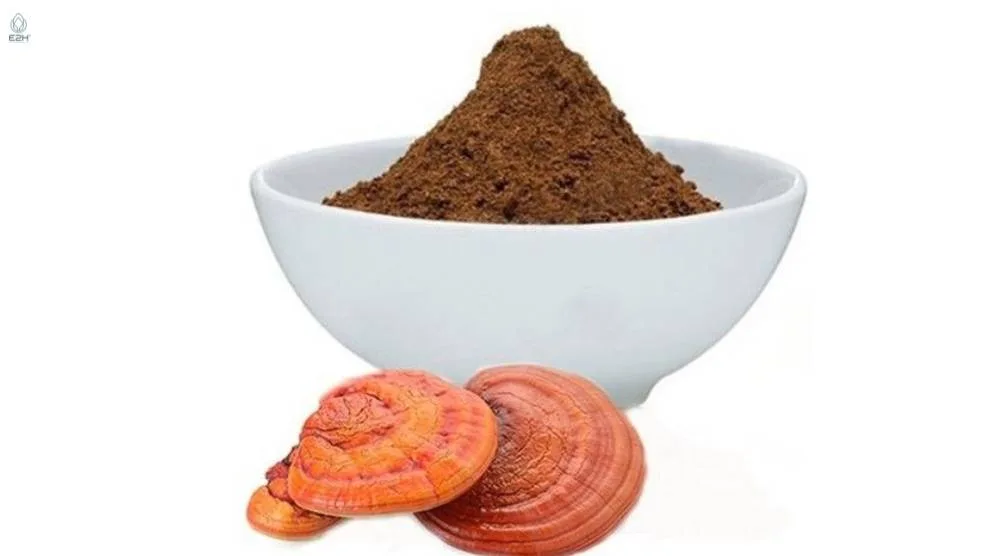
How Does Reshi Extract Affect The Generation Of Reactive Oxygen Species (Ros) In Cancer Cell Lines?
Reishi extract has demonstrated potential in modulating the generation of Reactive Oxygen Species (ROS) in cancer cell lines. Studies suggest that the antioxidant properties of Reishi’s triterpenes and polysaccharides may help mitigate ROS levels, which are often elevated in cancer cells. By regulating ROS, Reishi extract may contribute to a cellular environment less conducive to cancer progression. However, further research is needed to comprehensively understand the mechanisms and potential therapeutic applications of Reishi in cancer treatment.
FAQs
What are the primary bioactive components in Reishi extract?
Reishi extract contains beta-glucans, triterpenes, and polysaccharides, contributing to immune support and overall health.
How do these active compounds benefit health?
Beta-glucans enhance the immune system, triterpenes offer antioxidant effects, and polysaccharides contribute to anti-inflammatory properties, collectively supporting well-being.
Are there specific compounds responsible for Reishi’s immune-boosting effects?
Yes, beta-glucans play a pivotal role in enhancing the immune system, making Reishi extract a valuable natural supplement for immune support.
Do the triterpenes in Reishi extract have additional health benefits?
Certainly, triterpenes, including ganoderic acids, showcase antioxidant properties, providing potential advantages in combating oxidative stress and supporting cellular health.
How can Reishi extract contribute to overall wellness beyond immune support?
In addition to immune benefits, Reishi extract’s triterpenes and polysaccharides contribute to anti-inflammatory effects, potentially promoting overall well-being and health.
Conclusion
Reishi extract, with its key compounds like beta-glucans and triterpenes, offers a natural boost to our immune system and overall well-being. Incorporating this into your routine might be a simple yet impactful step toward a healthier lifestyle. Embrace the potential benefits of these active compounds, and let Reishi be your ally in fostering a resilient immune system and supporting your journey to optimal health.
